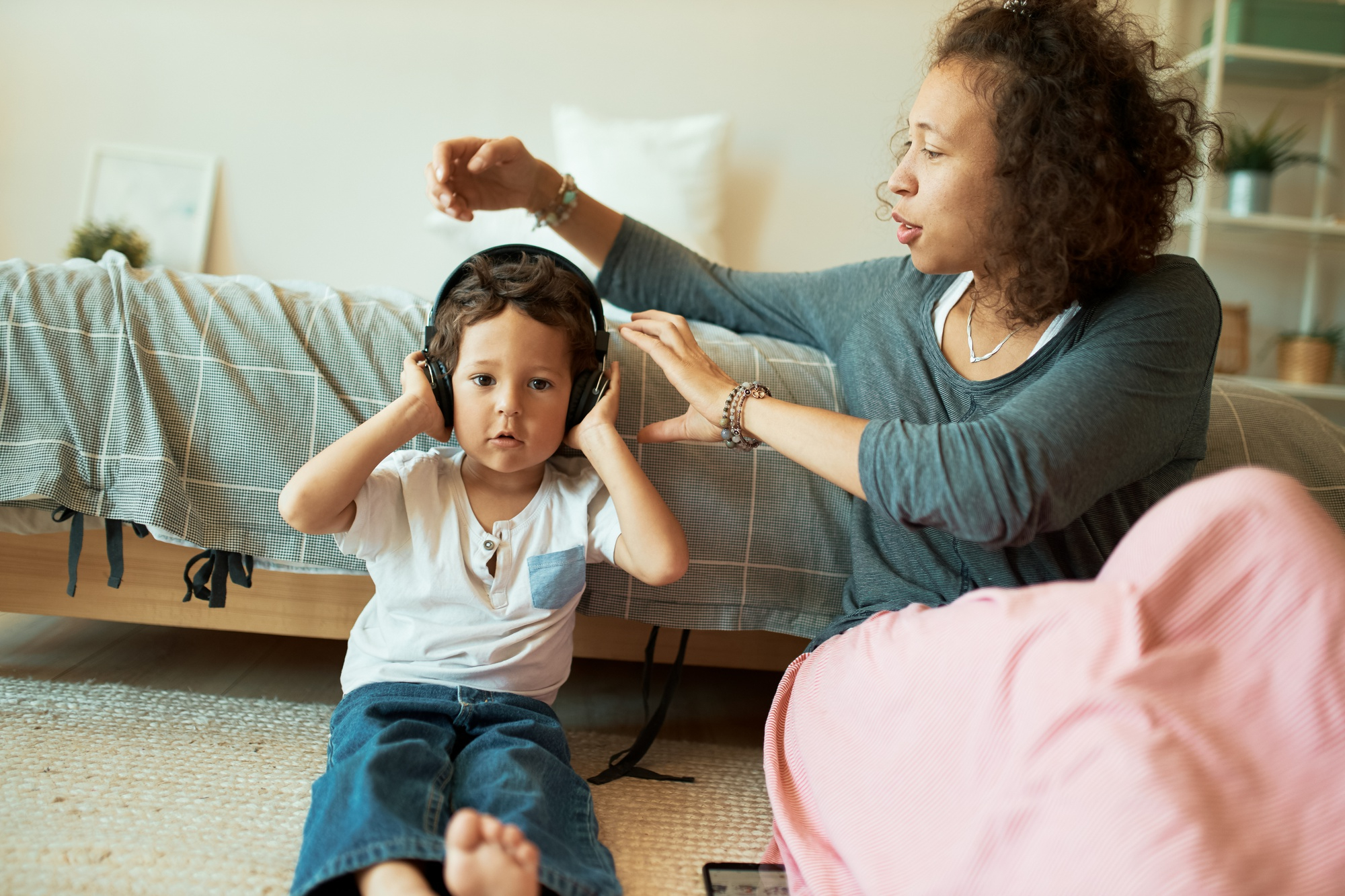What does your child usually say when the school year ends for them? Do you hear them say, “Yay, school’s out for summer!”? Or do you see them reacting with awkward silence, fidgeting, panic, slight sadness, or a little anger? This may be the response from children who have anxiety, knowing summertime is more challenging.
“Mom/Dad, I’m bored.” This is a guaranteed response heard during the summertime by children everywhere. Whether they have an electronic device or not, at some point, these words will be heard.
When summer approaches, children with anxiety who are used to the structure of the school year to help keep them balanced are now faced with a few months where there isn’t any such structure. These children do enjoy some parts of summer, such as having no homework and a specific activity or two. But for those children who have both parents working full-time, they either must have babysitters, be enrolled in long summer camps, or some depending on their age are left alone. They face new rules, routines, constant transitions, and disrupting sleep routines while away from home.
Children with anxiety may feel overwhelmed by the interruption or change in routines, while their peers feel that summer is relaxing and so look forward to the break. Does this sound like what your children are going through? If so, maybe we can help.
In this article, we will help you learn why your children may be anxious during the summertime months and how to prevent and cope with their anxiety. Keep in mind that all children will experience a form of boredom during the summer; rather than feel that panic of not knowing what to do, we have some suggestions to help curb the boredom for the whole family.
What Causes Summertime Anxiety for Children?
- Different daily routines: Children with anxiety are best suited to structure, so they know what to expect and it’s familiar to them. When summer rolls around, routines change, rules and expectations change, the lack of predictability and structure is overwhelming, and can result in tantrums.
- Overscheduling: Try not to cram in so many new experiences with lots of camps, classes, and activities, with no time to relax and recover. Filling every hour of every day just adds to the stress and anxiety. Ideally, summer break is supposed to theoretically reduce that stress. If adults can feel this way about summer, so can children.
- Food Changes: We all know summertime is when we load up heavily on sugary and salty snacks, with the sleepovers, camping, ice cream trucks, etc. However, when you steer off a healthy balanced diet, it can affect how children feel physically and emotionally.
- Sleeping Changes: Sleep issues can predict rapidly growing anxiety symptoms, and those children with anxiety have trouble falling and staying asleep.
- Screen Time: Increased risk of anxiety and depression with more screen time. It is no secret or surprise we need to be trying to keep a healthy balance with screen time. This applies to ourselves as parents as well as our children.
- Travel: Travelling can be fun, and create loads of memories, but it can also be overwhelming. If flying, there is flight anxiety, travel delays, sleeping in unfamiliar places. Traveling by vehicle can be car sickness, or claustrophobia, or anxiousness of long trips by a vehicle. Travel brings change and is not always easy for children who are worriers.
How to Help Prevent and Cope with Your Children’s Summertime Anxiety
- Know yourself, as a parent, as well as a person: Do you become anxious when structure is broken? Or are you more go-with-the-flow? Knowing this about yourself and your spouse/partner helps to know your strengths and limits as you work around structure with your family. Anxiety in an adult tends to lead to anxiety in the children. Be cautious of the words and their meanings you say aloud AND what you look like when life throws challenges at you. Children learn and adapt by observing.
- Know your child: Speak with your children about their feelings, especially their worries. The more you know how your children think and feel about summer, the more you can better help them cope with their fears. Validate your children’s worry no matter how big or little it is, and help them cope with skills like deep breathing, exercise, and talking about it.
- Before summer break starts, communicate what changes are going to happen: Include your children in the family discussion of what will be going on during the summer. By doing so, you can see and hear what their worries may be about. Focus on what they enjoy about the change from school to summer.
- Keep a loose schedule of the week and discuss the upcoming week with your children: Being able to see the schedule for the week can help to give your children some control. Though changes will occur often, the visuals will assist in regulating their anxiety ahead of time. It can be grounding to see a visual and concrete plan at that moment in time, even though it is subject to change.
- Let your children be involved in planning summertime activities: If you are having a family get together in August, for example, let your children help plan meal ideas or gift bags in July. They can spend some time each day on their designated activity. Help them learn to plan and organize positively, by doing little bits each day to complete the task. If you are planning a summer trip somewhere, let your children be involved in planning a part of what you are going to do. Look up the area on a map together, for example, and maybe go to a specific park or attraction that looks interesting to them. Along with the pre-planning stage, let them help in the packing stage, with having their suitcase out and what to bring and doing little bits each day a few weeks before having to go.
- Basic balance: Keep to your balance routine as best as you can, but indulging here and there is all right. Trusting your instincts is best. Not every invitation to a social gathering needs to be accepted, especially if your children are not feeling engaged in it. Tune into their needs and create a relaxing summer focused on the family. Balanced nutrition, keeping hydrated, exercise of some sort, a consistent sleep routine, and regular downtime and unstructured play are best for helping anxious children flourish.
- Keep sleep consistent: Though the daylight is longer in the summertime months, your children still need the same amount of sleep. White noise, relaxing music, blackout curtains and shades, or weighted blankets can all encourage sleep. While a few late nights are not harmful, preserving the sleep routine your children rely on during the school year helps to prevent losing sleep or getting caught in constant change.
- Spend time together: You do not have to spend a lot of money in order to spend quality time with your children. They appreciate what time you give them if all your attention is focused on them and what you are doing together. It can be anything from a small walk in the park, to a little drive to a novelty tourist spot in your own area, to a little spa day at home.
How to Help Curb Your Children’s Summertime Boredom
1: Try a New Hobby. Summer gives you lots of time to try new things. Talk to your children about their interests to learn what they may be willing to try, and what might work for them.
Hobbies you can try:
- Baking/cooking
- Gardening
- Knitting or sewing
- Painting or drawing
- Photography
- Playing music
- Reading
- Writing
- Computer programming
2: Physical Activity. Exercise is beneficial for improving sleep to help balance a healthy lifestyle. You do not have to force your children to join a gym-like activity either for them to benefit from regular exercise. The activities they enjoy are more likely to spark interest in consistency and help to keep a routine.
Activities you can try:
- Blowing and chasing bubbles
- Dance parties
- Follow the leader
- Hide-and-seek
- Hopscotch
- Jump rope
- Simon says
- Skipping
- Yoga
- Relay races
- Kid-friendly workout videos
3: Make an Activity Jar. Take a jar and have each family member write down a bunch of activities on pieces of paper and stick them in the jar. When you are bored or not sure what to do, pull an activity out of the jar and try it out.
Here are a few activity ideas for your jar:
- Baking
- Bike riding
- Building a fort (outside or inside with blankets)
- Hide-and-seek
- Hiking or a small walk
- Karaoke
- Movies (at home or theatre)
- Painting (or art of some sort)
- Picnic
- Run through a sprinkler
- Scavenger hunt
- Geocaching
- Water balloon fight
4: Plan an Adventure. It doesn’t have to cost a fortune, but this can get you and the whole family outside your house. Plan enough time in advance and make a list of possibilities, such as:
- Scavenger hunt through the neighbourhood or town
- Going to a drive-in movie theatre
- Try a local park or hiking trail
- Camping trip, nearby site, or your own backyard
- Visit a historical landmark or site
- Check out any murals in your city
- Spend a day at the lake
5: Group Projects. If you are planning any home renos this summer, this is a wonderful way to get your children involved. They may not exactly enjoy it as much, but it will help with the boredom, and depending on the project and what part of the task you let them help with they may eventually warm up to it.
Redecorating a room, letting them help pick the paint colour, clean out the closet and what other tasks you think they can handle.
If it is a yard project, like redoing the back deck, letting them come with you to pick out furniture cushions makes them feel like they are involved. Depending on how hands on you all are feeling if you are doing it DIY (safely) letting them help hammer a nail or two may be a great bonding experience.
6: Virtual Activities. If you are a little confined to your home financially, or where you live, there are many camps, museums, libraries, zoos, and classrooms with online programming, and many are free for public use. Help your children find virtual activities that pique interest, like story times, concerts, or guided online tours. You can add these into your routine for easy, repeated activities.
7: Give Back to Your Community. Help your children help others by giving back to the community. Helping others makes your children feel like they are doing good in the world. Teenagers may need service hours for high school graduation requirements, so this can help boost that.
Ways to do this are:
- Babysitting
- Donating blood (if you have teens)
- Donate to the local food bank
- Donate clothes or toys
- Mow the lawn of a senior in the neighbourhood
- Write letters or create cards for those in nursing homes
8: Self-Care. Everyone in the family needs to practice self-care, to help release stress in the body and mind. Making sure each person in the family has a bit of quiet time to themselves, whether that be taking a nap, reading quietly outside, or going for a jog around the neighbourhood.
The entire family can try mindfulness and meditation activities, like yoga, to help reduce stress and anxiety.
Do not forget though, a little boredom is a good thing. Each moment of the day does not need to be filled. Boredom can help gain independence, improve problem solving skills, and expand creativity. It is a good thing to schedule things to do, it is also good for children’s development to figure out how to cope with boredom on their own.
Is your child still feeling bored and anxious, despite your best efforts and trying everything in this article? If so, it may be best you speak to a therapist and discuss options for your child. Reach out to our staff at Hopewoods if you have any questions regarding our child and youth counselling services, and how we can help with your child’s anxiety.









 by
by